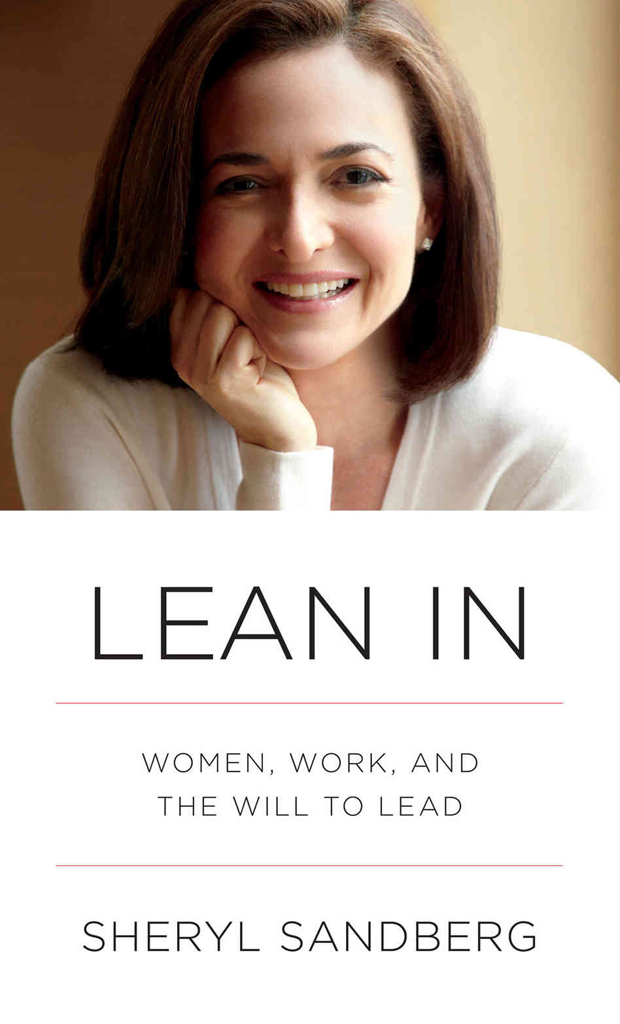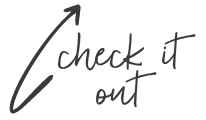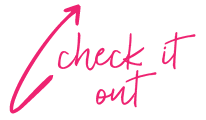Catherine and Jacqueline discuss Sheryl Sandberg’s bestseller as it relates to generation Y, feminism, career decisions, and definitions of success

Catherine’s review: Well-written and well-researched. You may think that you get the gist from her TEDTalk, but there is so much more to Sandberg’s words. Thought-provoking and discussion inducing… A must-read for women as well as for men. I can’t wait to discuss with others who’ve read.
Jacqueline’s review: Sheryl Sandberg’s Lean In is kind of like a pep talk for women. She argues to believe in yourself, “lean in,” and trust you can have it all. I love how she asks, “What would you do if you weren’t afraid?” But sometimes it’s not that easy. However, we all could use a personal cheerleader every now and then. So that’s how I see the book, as a pick-me-up when you need a little push.
Jacqueline and I got together over Google Hangout for a two-person book club discussion about Sheryl Sandberg’s Lean In: Women, Work and the Will to Lead. Despite the limited scope of opinions, Sandberg’s content prompted some disagreement and controversy.
First Impressions and Personal Experiences
C: What were your impressions of the book?
J: I liked it, but I didn’t learn anything new. I don’t know if it’s because I’ve read it at a point in my life when I’ve already learned all of it organically or received similar messages from mentors, and it no longer resonated with me. Also the chair, president, and editor-in-chief of the company I work for (The Huffington Post) is a woman. From Arianna down to our staff/team, it sets a precedence of gender equality. But I would still recommend it to other women.
C: Both of us work in female-dominated industries. My college was predominantly women too, so I’ve been around a lot of go-getting women over the last ten years. The traditional sexism that comes with working “old white men” in corporate America is not what we’re experiencing. It does bring up issues in the industries we’re in. What could be missing is women’s groups, so women’s issues aren’t addressed… which is fine because I have women role models. Do you think that working with so many women can give you a bias that blinds you to societal norms?
J: I wouldn’t say that we’re blinded to the issue. I cover science, health, and technology, and that journalistic beat is a mostly male-dominated arena. At the National Association of Black Journalists (NABJ), I met Danielle Lee who has a phD in biology and also writes about science. She pitched a story she was working on about the urban environment and health to a journal, and naturally she wanted to be paid for it. They said they didn’t have the bandwidth to pay her the fee she requested and ended the email calling her an “urban whore” for asking for so much money. She saved the email and sent it to news media as the perfect example of what women face in a male-dominated industry. Anyway, you see cases like that and it’s a slap in the face not only for women but also for minorities. It offends on different levels.
What’s more of a game-changer than reading books like this or hearing the message that there is a way to be successful as a woman is actually seeing it. So seeing Arianna, seeing other editors doing incredible things, that’s what makes books like this come to life.
Feminism for Generation Y
C: That’s true, but that speaks to Sandberg’s point that there aren’t enough women leaders in most industries to ensure young women like us can see positions to strive for. Well “Let’s Start Talking About It” (chapter 10)… Sandberg quotes American feminist and activist Gloria Steinem quite a bit in the book, but bell hooks points out that Sandberg is not a true feminist and isn’t seen as one by academic feminists saying “ she offers a simplistic description of the feminist movement based on women gaining equal rights with men.” Sandberg has an antiquated view of feminists as traditional bra-burners who didn’t wear make-up or brush their hair. I always thought feminists were cool. There’s a service organization at Loyola Marymount that made shirts that said “This is What a Feminist Looks like.” And it makes you consider what it really means to be a feminist. It must be a generational thing.
J: We grew up with “Girl Power” in the 90s. We thought that was cool.
C: True. And we never thought about that as feminism.
J: We were getting subliminal messages of “Girl Power” from the Spice Girls and young entrepreneur women in The Baby-sitters Club. We grew up in a different time that taught us it was cool to think of that.
C: We also grew up being told that we can be whatever we want to be. We may be the first generation to go into journalism and fashion, etc. without thinking twice about it… because that’s what we wanted to do with our lives, not because we tried the corporate route and failed and then went into what was actually interesting to us.
J: At the root of it, though, a feminist is someone who supports equality. It’s the belief that men and women should have equal rights. It’s weird that it’s such a controversial word.
C: Sandberg says “A feminist is someone who believes in social, political, and economic equality of the sexes” (158). But bell hooks offers a more sophisticated and evolved definition when she says “whether feminist or not, we all need to remember that visionary feminist work which is not a woman running the world as is, but of women doing our part to change the world so that freedom and justice, the opportunity to have optimal well-being, can be equally shared by everyone—female and male.” We should all open our eyes to equality, yes, but we have to rework the system… just as you and I are seeing it in our women-run industry. While we’re slowly figuring out how to change the career force, let’s talk about a bigger one that affects young men and women and their ideas of women on a daily basis: the media. It’s still rare to see cultural depictions of happy and successful men/women who have families and careers.
J: When I think about most of the women in the movies and shows I watch, they are powerful in their careers but unhappy in relationships… Olivia Pope, Miranda Priestly. Yet there are also shows like Parenthood that challenge the status quo of male and female roles in the family: Julia is a lawyer and her husband is a stay-at-home dad. Kristina also decides to jump back into the workforce while her children are growing up.
C: You’re right! Kristina is a superstar mom who left her job to focus on parenting, and then found the right opportunity to jump back in when she was ready. Actually, that’s true of Brothers & Sisters which is very similar to Parenthood.
Generation Y Women on Leaving the Work Force
J: This also brings up a point about something I didn’t like about the book. I don’t like the message that some may mistakenly take away, which is that women should have to want to work. I think that’s some of the criticism she received.
C: Well, she did address it in the book at least twice. She says if you want to leave your career and raise children, that’s a noble thing to do and you should do that. There seems to be some insecurity on her part; in writing this book she’s trying to convince herself that she made the right decision to stay in her career instead of focus 100% on her children (even not taking a full maternity leave). But she does mention it in passing, so I can see why people would continue to criticize her.
In “Don’t Leave Before You Leave” (Chapter 7), Sandberg talks about women making decisions about where their life is going before they are even faced with the actual decision. There’s a story about the girl in her mid-twenties who asks about maternity leave. Sandberg asks if she is trying to have a baby with her husband. The girl says she doesn’t even have a boyfriend. That story kind of resonated with me, because my mom made the decision to be a stay-at-home mom. She was super involved in our lives—she was the field trip mom and the one who was always volunteering at school, the mom all my classmates knew. I want to be the mom who sets up the birthday and Halloween parties. I don’t think that thought has held me back necessarily, but it is in the back of my mind.
J: When I start having kids, I may want to start freelancing and focus on taking care of my kids. I want to be a mom. However, I feel like now I have to grind really hard to get to the point where I can easily step away and feel like I achieved what I wanted to before having kids. So it does play a role in my thinking, but I’m the opposite of what she talks about… I am more concerned about working my butt off to achieve what I want to career-wise before I start a career as a mom.
C: Sandberg does say “By not finding ways to stretch herself in the years leading up to motherhood, she has fallen behind. When she returns to the workplace after her child is born, she is likely to feel less fulfilled, underutilized, or unappreciated” (94). She says that you have to give your career your all so that after you have a child, you can continue to find your job fulfilling. However in the industries we’re in, we could work from home and make a living. This is something that wasn’t available when the Internet wasn’t readily available everywhere you went and when most communication happened in person or through a landline phone. That fact challenges Sandberg’s idea that you have to return to the same workplace in order to continue finding career fulfillment.
J: The more I thought about the book, I did realize we are lucky to be in an industry that allows for flexibility. So it would be interesting to talk to someone our age who works in finance or in a male-dominated industry and hear her take on it… hear what happens when she starts to have kids.
C: In the NPR article you sent me, a Harvard University senior Kimberly Foster says “Seeing these sort of stresses of trying to pursue a career and balance the family and juggle all of these different things, it just made me think that life is not appealing. I want to be free. I want to be flexible in my career, and I want to be able to make my own rules and set my own agenda.” That’s a generation Y thought. You can create your own career and make your own schedule. People our age are launching websites and companies and making their experiences their own. You don’t have to play by “their” rules to feel successful.

What Exactly Is Success?
C: On that note, it’s hard to accept when you’ve had “success,” especially for women who aren’t self-promoters (a point Sandberg talks about in Chapter 3: “Success and Likeability”). It’s hard to say, “I’m a successful 20-something-year-old.” No one really thinks of herself or himself as successful, but we all need to learn how to acknowledge our successes, big and small. What is your definition of success?
J: You know that Trey Songz and Drake song “Successful”? Our generation thinks of success as having money, clothes, power. I thought of success as being the go-getter woman in charge, an Olivia Pope type of person. But I started working on The Third Metric project at The Huffington Post, and the goal behind that initiative is to encourage ongoing conversation about how we can chart a course to a new, more humane, more sustainable definition of success—for women and for men. We explore success as it relates to your relationships, your health… what does success mean in these other avenues, and how does that change your own definition of success? From my own involvement in the project and redefining success for myself, I haven’t come to a certain definition but my idea has changed. Now I would describe it as being happy with where you are when it comes to your well-being and when it comes to your wisdom, your relationship with others and your purpose in your life… I think that’s what success is.
The idea of success as money and power comes from our society’s idea that money is what makes you happy, when it really doesn’t. Redefining success also redefines what makes you happy: your relationships, your contentment, your feeling of purpose.
C: I think it makes complete sense. Redefining success beyond money and power and as happiness and contentment is a much better ideal to strive toward. To redefine success as being happy with who we are, it allows us to define our own path and discover who we are. If you want to be a stay-at-home mom, that’s what you want to devote your life to. Success is your level of fulfillment with what you have and what you achieve. If you are doing something well in a traditional sense yet don’t feel fulfilled, you won’t feel happy or content. You won’t feel successful.
It’s Not Personal, It’s Business
C: “Seek and Speak Your Truth” (Chapter 6) discusses professional persona. How much of your career self do you separate from your personal life? What Sandberg talks about in the book is that we’re in an era when bringing your personal life to work and being honest about who you are and where you’re coming from can only help you in your career and in your workplace. I know personally I like to separate the two. I don’t think that everyone I work with needs to know everything going on in my life. I want to have something else outside of the office.
J: That’s how I feel, but I’m starting to second-guess myself. My aunt is the general counsel for a huge company. She’s one of the few African American women in her position in law. I heard her give a speech for an award she got saying that the best advice she was given is to be authentic, to be at work who she is in her life. She was told she was too stiff. When she started loosening up and slowly blurred the lines between who she is in her personal and who she is in her career life, that’s when many doors opened. My dad as a business owner also tells his team to be real about who they are; to be themselves. I hear this but I still am guilty of not practicing it. Because when are you being too honest? And what if bringing your personal life to work back-fires?
C: I think where you’re going with this is that you experience authenticity when you don’t have to compartmentalize parts of your life. In the book a single woman without children at a Women in Consulting Panel said “My coworkers should understand that I need to go to a party tonight—and this is just as legitimate as their kids’ soccer game—because going to a party is the only way I might actually meet someone and start a family so I can have a soccer game to go to one day!” (132). Just because we don’t have a family to go home to does not mean our personal life is any less legitimate, and in fact it means that we have to work harder in our personal lives to find fulfillment. It’s part of that work-life balance.
In the past few weeks, I’ve had a breakthrough in that I’ve realized work is work. No mistake and no choice you make is going to affect everything so badly that you can’t go back from it. With that in mind, I used to throw myself into work and stay as late as I needed to, maybe past the hours I needed to. And I finally thought “I devote so much of my time to this job and feel like I have little to show for it.” So I took a step back and asked myself “if I’m not happy, what do I need to change?” If at 6:30 I need to take a mental break and do something else, then I have to do that.
J: I think that’s part of blurring the lines between personal and professional.
C: I think that I have always thought not keeping personal and professional separate undercuts professionalism. I wonder how seriously they’ll take me based on choices I make outside of the office.
J: I thought that too and maybe also being an African-American woman … my parents were always telling us not to give anyone a reason to doubt you. If you are so open about your personal life, is that opening a door for someone to question, or to judge or doubt?
C: That’s what Olivia Poper’s father said to her at the beginning of this season: “What have I always told you… you have to work twice as hard to get half as much.”
J: That’s what my parents told me. That’s the message in many ethnic minority families.
C: It’s something I learned myself through experience. Being a woman doesn’t always feel like the biggest obstacle, because in my company I was the only minority for years. From being a minority in college and in the world, I unintentionally learned how to blend in. That fact might affect how we see our achievements. You don’t want to give anyone a reason not to take you seriously.
J: bell hooks acknowledges the disconnect between the experience of women of different races and says “the reality was and is that privileged white women often experience a greater sense of solidarity with men of their same class than with poor white women or women of color.” Sometimes it’s easier to align with men than with someone in a different race or class as you.
C: One of the other points bell hooks makes is that Sandberg ignores the fact that she’s well-off. This book doesn’t speak to women of poverty, women who don’t have the freedom to make the choice to work or not to work. Sometimes it’s not an option. hooks says “Before females even reach the stage of life where choosing partners is important, we should all be developing financial literacy, preparing ourselves to manage our money well, so that we need not rely on finding a sharing partner who will manage our finances fairly.”
J: I think it’s smart to be financially literate, but don’t let that message impact your own happiness. If you’re in a wonderful marriage and are the breadwinner, that’s your third metric. Or, if you’re in a wonderful marriage and your husband is the breadwinner, that’s great too. Either situation is your own personal definition of success. I worry that when we have these conversations, our strive to be independent might impact how anyone view happiness for herself.
Closing Remarks
C: Who in your life inspires you to care about and fight for gender equality?
J: Since I joined the HuffPost team, I would say Arianna because of what I see her doing with our company—The Third Metric project for example. Seeing her use her success to change the way society views success is inspiring. In my position as someone who’s a communicator, it motivates me to ask how can I try to inspire others.
C: Ultimately what Sandberg offers in Lean In is a challenge of the systems of power in place in our society in a book that speaks to women generally. Whether it’s the first time you’ve heard this message or the tenth, you are reminded of the evolution that needs to continue to happen in order to bring men and women true equality, the right balance of work and personal life, and finally a revision of our definition of “success.”
What breakthroughs did Lean In bring you to? Share with us in the comments!
Catherine Abalos is founder/editor of The Single Diaries and a self-proclaimed feminist.
Jacqueline Howard is an editor at Huffington Post and a host of Talk Nerdy to Me.





























